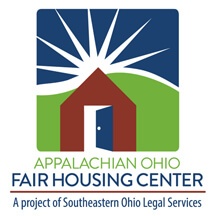What is fair housing and how does it apply to my veteran status?
Fair housing is the right to choose housing free from unlawful discrimination. The federal Fair Housing Act (FHA) and Ohio laws protect people from discrimination in housing based on the following protected classes: race, color, religion, national origin, sex, familial status, disability, ancestry and military status. Discrimination is illegal in housing transactions such as rentals, sales, lending, and insurance. Under Ohio law, military status, which includes veterans, is a protected class. Protected classes are designated groups of people and their families that are covered under fair housing law. The military status protected class covers veterans, those individuals on active duty, and those persons enrolled in the Reserves.
What types of housing activities are covered under fair housing?
Most housing-related activities are covered to some extent by fair housing laws and regulations. Below are some of the more typical activities but this is not an all-inclusive list.
- Advertising
- Tenant screening
- Determination of eligibility
- Leasing including policies and procedures that restrict protected class members from receiving, completing or submitting applications
- Policies and their implementation such as “no pets”, “deposits” or “terms and conditions of tenancy”, “housekeeping standards”
- Relations between residents
- Provision of amenities
- Provision of reasonable accommodations and reasonable modifications for persons with disabilities and individuals associated with persons with disabilities
- Eviction and other termination of residency actions
Who must follow fair housing laws?
Property owners, developers, condo associations, and homeowner associations are covered parties under fair housing laws. Their employees, such as property managers, clerical staff, maintenance workers and all others are responsible for performing their duties in a manner consistent with fair
housing. Attorneys and real estate agents must act and advise their clients in a compliant manner.
Other residents in the building or development can be held responsible under fair housing laws and regulations if their behavior is considered to be discriminatory, such as harassment of you due to your veteran status. Developers, architects and contractors can be held liable under the accessible design and construction fair housing mandates for units built for persons with disabilities and their families.
If a veteran has a disability are there other fair housing protections available?
In addition to military status fair housing protection, a veteran with a disability, service related or not, also would be covered as a person with a disability. Persons with disabilities may be entitled to reasonable accommodations or modifications to allow them to use or enjoy their homes.
A reasonable accommodation is a request for a change or waiver to a policy, practice, procedure or service to allow housing access and opportunity for a person with a disability. Common examples of reasonable accommodations are a request for a designated, accessible parking space, assistive animals in a no-pet policy building, and alternative references.
A reasonable modification is a physical modification to allow greater accessibility and use of the property for a person with a disability. Common examples of reasonable modifications are the installation of bathroom grab bars, ramps and stair railings. If the property owner is receiving government assistance, then all costs of the reasonable modification are assumed by the property owner. If the unit does not meet those specifications, then the person making the requests assumes the costs as well as the costs to restore the unit to its original state.
What happens when a veteran is labeled as a person with a disability because of the assumption that he/she has a mental illness or substance abuse problem due to past military service?
The definition of disability used by both the state and federal fair housing laws includes protection for those persons who are presumed to be disabled and are discriminated against due to that presumption. So, in the example used in the question, the fair housing laws would protect a veteran who is denied housing because the property owner believes he/she have a mental illness or substance abuse issue.

